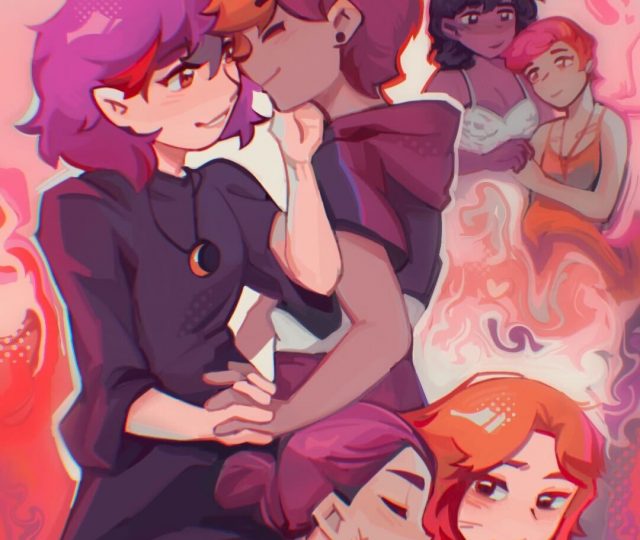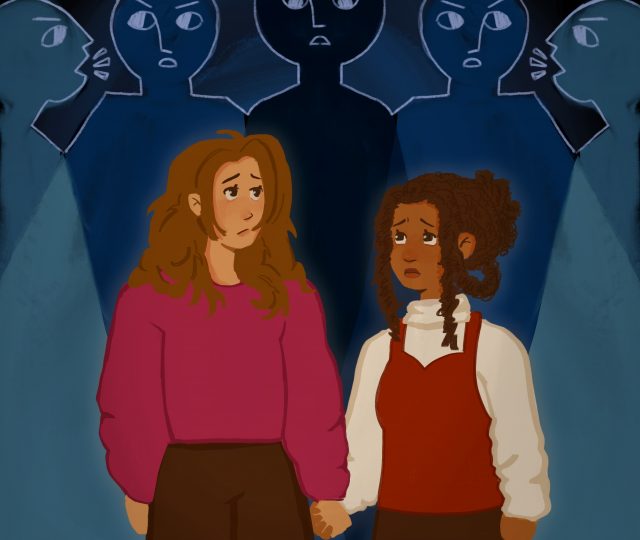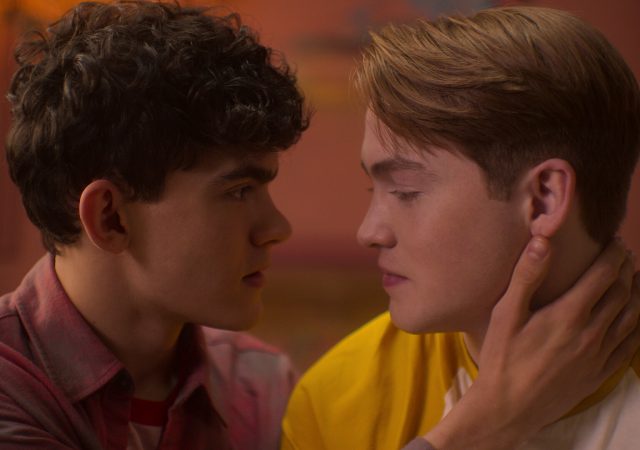When Season 1 of “Heartstopper” came out in April 2022, I was a senior in high school. I was coming out of yet another situationship with a straight guy. My story was classic: grow close to him, develop feelings, question whether or not he’s straight, confess.
Arts & Entertainment
Queering Masculinity in “Stone Butch Blues”
Leslie Feinberg’s historical novel “Stone Butch Blues” voices the experiences of many butch and transmasculine individuals. In a transformative exploration of queer recognition and the way it damns and redeems us, the novel unearths critical queer history and underlines the importance of intersectional solidarity. Courage, loneliness, and understanding echo through the story of the butch protagonist, Jess Goldberg.
Araki and the Apocalypse
It’s not every day that your new gay crush climbs through your window, confesses their love, and then promptly explodes in a shower of blood “Alien” style, leaving behind a cockroach-like extraterrestrial. But it happens in Gregg Araki’s surrealist sextravaganza “Nowhere.”
To Walk A Mile in Her Shoes You Must First Wear Her Skin
The horror genre has a transphobia problem. I’m an avid horror fan whose apartment requires a warning to enter with all the horror villains plastered to my walls. I am also a transgender person who knows that negative depictions of my community, however unintentionally harmful, do have an impact. To understand these consequences, I will be discussing four horror films that feature transmisogynist tropes and explore how their portrayal causes real harm to the trans community.
Under the Synth and Glitter: A Review of Queer, Autistic Artist Elliot Lee’s “Fun” and “Easy To Be You”
Elliot Lee is an unapologetically LGBTQ+, nonbinary, and neurodivergent dark pop artist. In the past month, they released two new singles: “Fun” on May 19 and “Easy to be You” June 9. Both of the songs deal with feeling like an outsider and wanting something you don’t have but ultimately coming to the conclusion that being yourself is the only way to live life.
What the Devil is That Racket?!
On March 26th, 2021, Lil Nas X dropped “MONTERO (Call Me By Your Name),” the lead single for his album “MONTERO” and a passionate declaration of queer love and desire. The single by itself would likely have received a largely positive reaction, as Lil Nas X already had considerable recognition. However, “MONTERO”’s music video featured Lil Nas X as an angel who rides down a pole from Heaven to Hell and gives the Devil a lapdance.
Being My Mother’s Son: A Review of Queer Korean Documentary “Coming to You”
On May 5, 2023, UCLA screened “Coming to You” (“한글: 너에게 가는 길”) directed by Gyu-ri Byun (she/her), a groundbreaking Korean documentary about the mothers of queer adults in Korea. The documentary centers on the mothers, Nabi (she/her) and Vivian (she/her), who are members of PFLAG Korea (Parents, Families and Allies of LGBTAIQ+ People in Korea). Both women are cisgender and heterosexual. Prior to their children coming out to them, they held little to no knowledge about the queer community and harbored discriminatory opinions about queerness. Nonetheless, the documentary made no excuses for their past queerphobia and followed their journeys into wholehearted queer activism.
Queers Kill Cats, Too: A Review of “Gummo”
Harmony Korine’s 1997 directorial debut “Gummo” is one of those movies that gets swallowed up by its own images. More than any plot event, people remember “Gummo” for the bathtub spaghetti scene, the Bunny Boy’s hat, and the unique shape of Jacob Reynold’s head as Solomon on the film’s box art. This is strange, though, considering that the film itself aspires to be so much more. Revisiting “Gummo,” it reads as an attempt to address as many social and political issues as possible by slotting them into the film’s Midwestern setting. Over the course of its runtime, “Gummo” explores themes ranging from sexual assault to racism to misogyny to ableism and eventually to homophobia, transphobia, and beyond, all to wildly varying degrees of success.
A Review of “Proud Boi”: Celebrating Black Trans Joy
In February of this year, I had the pleasure of interviewing Black trans rapper Cuee. We discussed his career, future hopes, and musical and transitional journeys, but one aspect of our interview particularly inspired me: his emphasis on joy. Despite the darkness the transgender community faces, Cuee stated, “I want people to hear my story…and be like, ‘Okay, there’s the joy.’” His music has certainly achieved this goal — joy is present throughout his discography, and he has once again musically embodied trans happiness in his latest single, “Proud Boi.”













